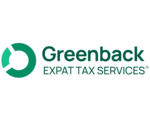Today, the Japanese yen is one of the most traded currencies in the world (after the US dollar and the euro).
The Japan External Trade Organization (JETRO) continues to promote foreign investment through its online publication Invest Japan!
The Japanese stock market
The Nikkei All Stock Index of 225 companies is used to measures the state of the Japanese market, much like the Dow Jones Industrial Average in the United States. The Nikkei reflects trends in the Tokyo Stock Exchange (TSE), which is the second largest stock exchange in the world.
Japan´s TSE and its five equities markets are regulated by the Financial Services Agency and the Securities and Exchange Surveillance Commission (SESC), which work together to regulate trading and maintain ethical business standards. The SESC in particular is responsible for enforcing laws dealing with securities exchange.
Investing in Japan
Securities (shoken) companies are common in Japan, with some of the largest including Japan Securities Agents Ltd and Jafco Co., Ltd. Securities agencies offer numerous financial services and investment strategies geared toward different market sectors. Jafco, for instance, specializes in investing in smaller, unlisted business.
Japanese banks offer their own financial planning services, though they will almost always want to invest along the lines of the bank´s own interests, rather than yours.
Direct investment, especially of foreign capital, is promoted by the Japanese government through JETRO. For those who prefer to invest without the help of a securities company or a large bank, further information on the market is available through Japan Economic Newspaper, Nikkei News and Nikkei Daily, all of which are put out by Nihon Keizai Shimbun, Inc., the company that organizes the Nikkei 225.
For more on expat finance and investment in Japan, visit our website on expat money matters, Expat-Wealth.com .



